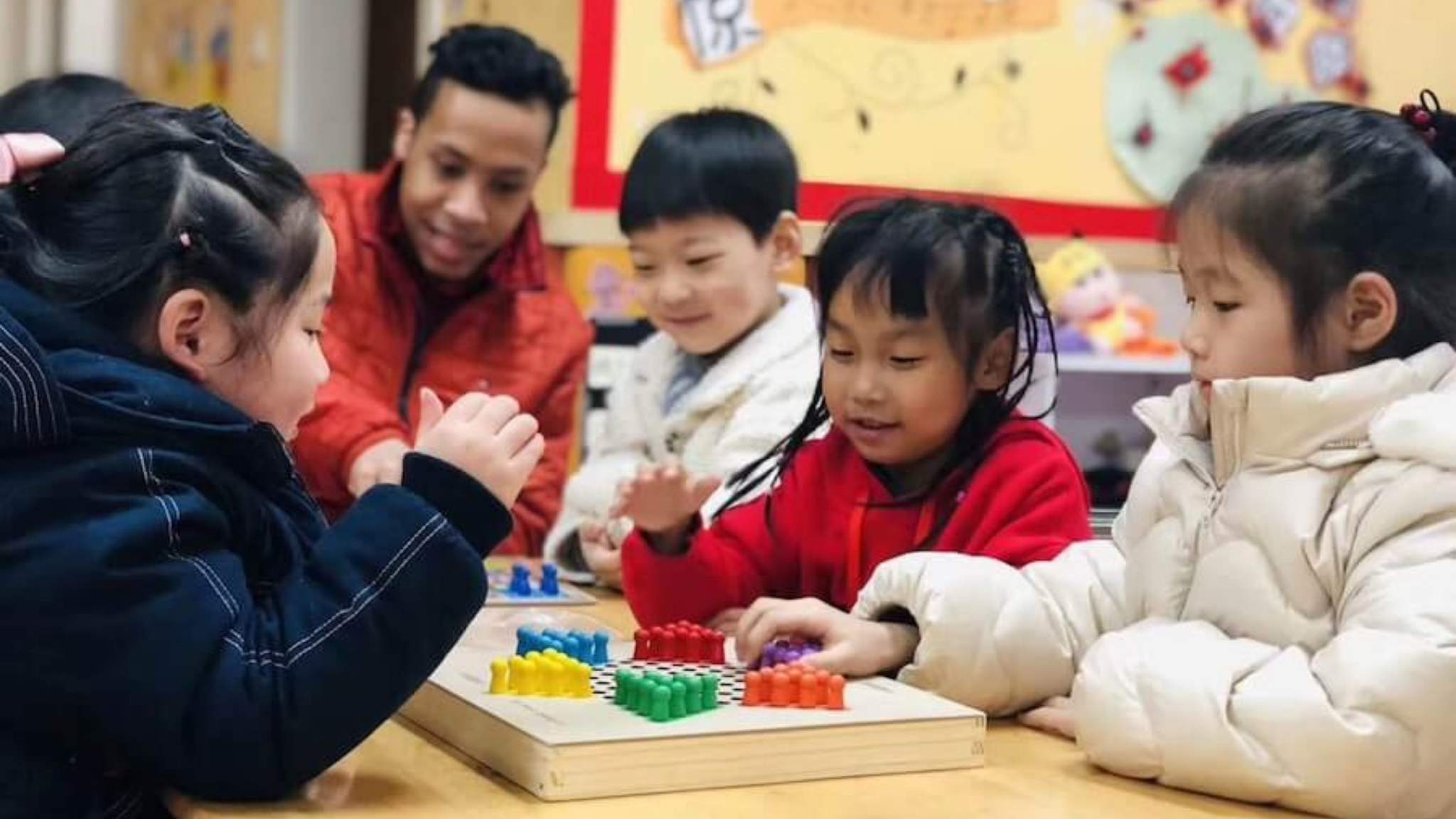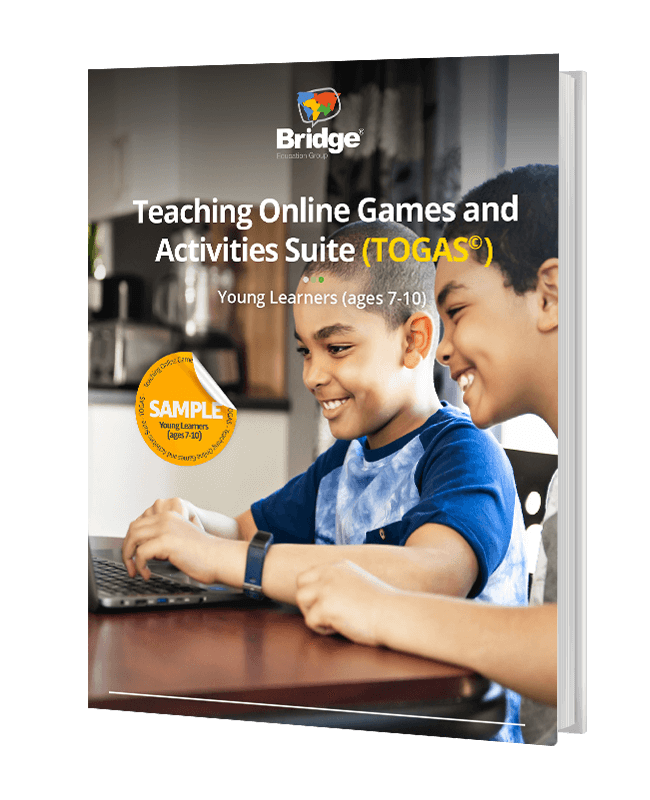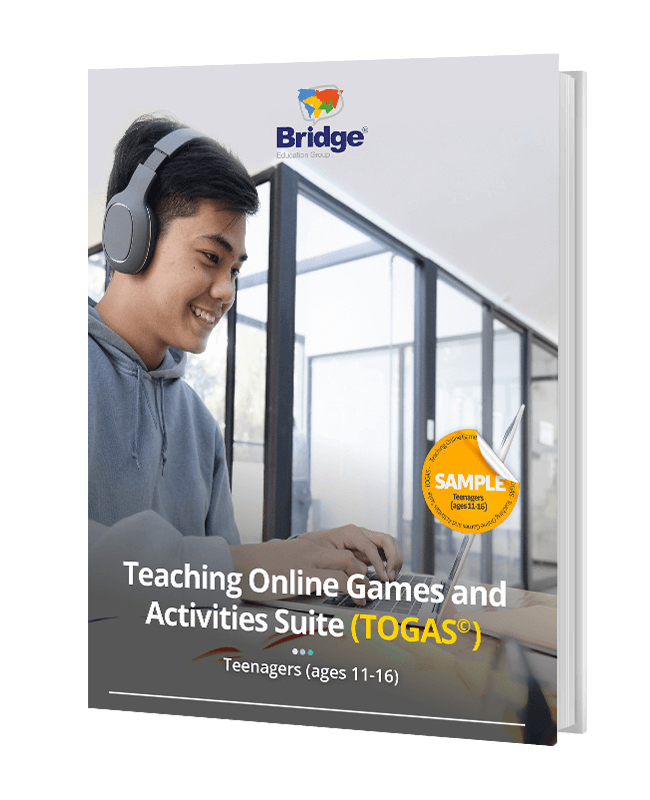Looking to bring the joy of global celebrations into your ESL classroom? These 10 ESL holiday activities are perfect for exploring world traditions, sharing favorite customs, and building language skills. From fun research projects to creative storytelling, these activities make learning about global holidays both engaging and meaningful. With options for both online and in-person classes, you’ll have everything you need to help students connect with the world – no passport required!
Looking for game and activity ideas year-round? Check out the 10-hour online Micro-credential Games and Activities for the Online Classroom (Young Learners).
- 1. Holiday traditions around the world research project
- 2. Find someone who celebrates…
- 3. Holiday symbols and meanings
- 4. Holiday storytelling
- 5. Holiday debate: “The most important thing about holidays is…”
- 6. Holiday traditions timeline
- 7. “Design your own holiday” project
- 8. Holiday-themed “Would you rather…?”
- 9. Holiday idioms and expressions
- 10. Holiday traditions “Taboo” game
1. Holiday traditions around the world research project
Get students to research and share their findings on different holiday traditions, building teamwork and presentation skills in the process.
Purpose: Build research skills, boost presentation confidence, and learn about different cultures.
Online setup:
- Form groups: Divide students into small groups using breakout rooms.
- Assign topics: Assign each group a culture or holiday to research, or let them choose.
- Research and prepare: Students use online resources and guiding questions, such as, “What’s the history of this holiday?”
- Create presentations: Students use Google Slides or Prezi for their presentations.
- Present: Groups take turns sharing their screens to present to the class.
In-person setup:
- Form groups: Divide the class into small groups.
- Assign topics: Give each group a specific culture or holiday.
- Research and prepare: Students use books, printed articles, and guiding questions.
- Create posters or skits: Groups can create posters or act out a skit.
- Present and discuss: Groups present their findings and answer classmates’ questions.
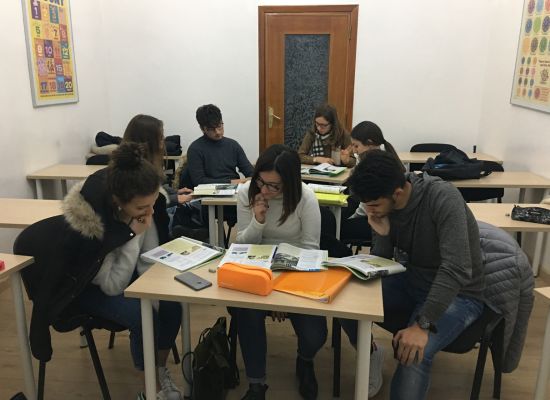
2. Find someone who celebrates…
A classic ESL icebreaker with a cultural twist, this activity lets students learn about each other’s holiday traditions.
Purpose: Practice asking questions, build listening skills, and share cultural traditions.
Online setup:
- Create a digital worksheet: Use prompts like “Find someone who celebrates a holiday with special food.”
- Use breakout rooms: Students chat in pairs or small groups, asking questions to complete their sheets.
- Discuss findings: Back in the main room, students share interesting facts they learned.
In-person setup:
- Distribute worksheets: Each student gets a worksheet with prompts.
- Mingle and ask: Students walk around, asking each other questions to find matches.
- Class discussion: Afterward, students share what they learned with the whole class.
Infuse fun into your lessons with this free eBook sample
Teaching Online Games and Activities – Young Learners
download3. Holiday symbols and meanings
Help students discover the meaning behind holiday symbols, from lights to special foods, from various cultures.
Purpose: Learn about holiday symbols, build vocabulary, and develop comparison skills.
Online setup:
- Introduce symbols: Share images of symbols (lights, trees, special foods, etc.).
- Research and discuss: Students research what these symbols mean in different cultures using online resources.
- Create a digital chart: Students collaborate on a shared document, adding findings about each symbol.
- Present and compare: Each student explains one symbol to the class.
In-person setup:
- Show symbols: Bring pictures or objects representing different symbols.
- Research in small groups: Students work in pairs to research a symbol.
- Create visuals: Each pair creates a small poster with images and meanings.
- Class display: Hang posters on a wall for a “symbol gallery” and have students walk around to view and discuss.
Check out these 8 engaging ESL vocabulary games for teaching in person or online.
4. Holiday storytelling
Encourage students to get creative by crafting holiday stories that weave together traditions from around the world. This activity not only boosts their writing skills but also deepens their appreciation for diverse cultures.
Purpose: Practice creative writing and narrative skills by crafting stories with cultural elements.
Online setup:
- Brainstorm together: As a class, brainstorm holiday elements like characters or traditions.
- Provide prompts: Give prompts like “A holiday celebration gone wrong.”
- Write stories: Students write their own stories using Google Docs or a similar tool.
- Share stories: Students share their stories in the chat or read them aloud to the class.
In-person setup:
- Brainstorm together: Have students brainstorm holiday themes or characters.
- Provide prompts: Share prompts for inspiration.
- Write and share: Students write their stories individually or in pairs and read them aloud to the class.
Learn more about teaching writing to ESL/EFL students at any level.
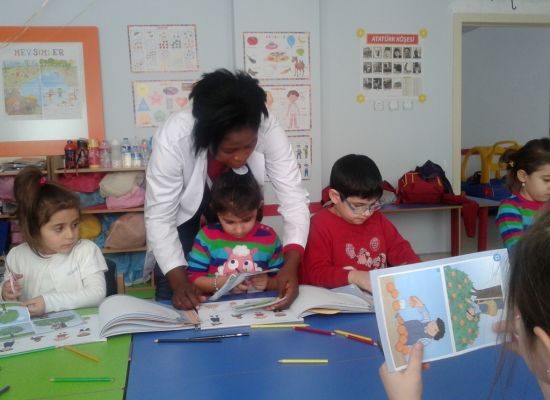
5. Holiday debate: “The most important thing about holidays is…”
Engage students in a friendly debate where they can explore and share diverse perspectives on the true meaning of holidays. This activity encourages critical thinking and respectful discussion, bringing out the many ways people celebrate.
Purpose: Develop critical thinking skills and practice persuasive speaking.
Online setup:
- Introduce debate topic: Discuss holiday purposes (e.g., family, tradition).
- Form teams in breakout rooms: One team supports “Holidays are for family,” and the other “Holidays are for tradition.”
- Prepare arguments: Students use online resources to prepare points.
- Hold the debate: Bring everyone back to the main room and let each team present.
In-person setup:
- Divide into teams: One team supports “Holidays are for family,” and the other “Holidays are for tradition.”
- Prepare and debate: Each team prepares arguments and presents them in a structured debate.
- Reflect together: Discuss what students learned about different perspectives.
Looking to keep your online classes dynamic and engaging for your teenage students? Check out our 10-hour online Micro-Credential course in Games and Activities for the Online Classroom (Teenagers) to discover fresh ideas that make learning fun and interactive!
6. Holiday traditions timeline
Students create a timeline to showcase holidays from various cultures celebrated across the year. This project helps them explore global traditions while practicing their presentation skills.
Purpose: Understand chronological order and learn about holidays year-round.
Online setup:
- Introduce the timeline concept: Explain how timelines show events in order.
- Assign holidays: Each student or group gets a holiday to research.
- Create a digital timeline: Students use a tool like Padlet or Google Slides to build the timeline together.
- Present: Each student or group explains their holiday’s spot on the timeline.
In-person setup:
- Divide topics: Each student or group researches a different holiday.
- Create a physical timeline: Students add their holiday to a large paper timeline on the wall.
- Discuss: Walk along the timeline as each student or group explains their holiday’s spot.

7. “Design your own holiday” project
Students tap into their creativity to design a unique holiday complete with its own customs, symbols, and celebrations.
Purpose: Spark creativity as students invent unique holidays.
Online setup:
- Brainstorm together: Think about elements like symbols, food, and traditions.
- Plan the holiday: Each student creates a holiday with details like name, date, and traditions.
- Create digital presentations: Students use slides or posters to showcase their holiday.
- Present and vote: Students present their holidays, and the class votes for their favorite.
In-person setup:
- Brainstorm together: Think about elements like food and symbols.
- Plan and create: Each student makes a holiday poster with details and visuals.
- Present and vote: Students share their holiday ideas with the class, and the class votes on their favorite.
8. Holiday-themed “Would you rather…?”
A lively “Would You Rather?” game gets students talking as they share their holiday preferences and practice conversational skills.
Purpose: Practice speaking and expressing preferences with a fun twist.
Online setup:
- Prepare scenarios: Share prompts like “Would you rather spend a holiday at the beach or in the mountains?”
- Discuss in breakout rooms: Students discuss their choices in small groups.
- Share with class: Return to the main room and have students share their answers and reasons.
In-person setup:
- Present scenarios: Read prompts to the class.
- Small group discussion: Students discuss choices with their group and share with the class.
- Class sharing: Each group shares some of their answers.
Looking for more activities to get your students talking? Here are 12 more TEFL speaking activities!
Motivate your students with this free eBook sample
Teaching Online Games and Activities – Teenagers
download9. Holiday idioms and expressions
Expand students’ vocabulary and cultural awareness by introducing them to holiday idioms from around the world. This activity adds a festive flair to language learning while exploring unique expressions.
Purpose: Teach holiday idioms, build vocabulary, and explore cultural expressions.
Online setup:
- Introduce idioms: Share idioms like “turkeys voting for Christmas.”
- Research and share: Students research idioms from their cultures and share meanings.
- Create digital flashcards: Students make flashcards or slides with idioms and meanings.
In-person setup:
- Introduce idioms: Teach idioms from various cultures.
- Create posters: Students make posters illustrating idioms and meanings.
- Display and discuss: Display posters and discuss how idioms reflect cultural values.
Want to add some excitement to your adult ESL classes? Don’t miss these easy ESL games for adults for activities that boost engagement and make learning enjoyable!
10. Holiday traditions “Taboo” game
This guessing game lets students describe holiday traditions without using certain words, making it a fun challenge.
Purpose: To practice describing things without certain words, enhancing vocabulary and communication skills.
Online setup:
- Prepare digital cards: Use online tools to create Taboo cards with holiday traditions and forbidden words.
- Play the game: Students describe a tradition without using forbidden words while their team guesses.
- Rotate turns: Give each team a turn describing and guessing.
In-person setup:
- Prepare physical cards: Write traditions and Taboo words on index cards.
- Play in groups: Students describe their traditions while their team guesses.
- Award points: Rotate until each team has had a turn, awarding points for correct answers.
These ESL holiday activities are a great way to make language learning festive and fun! By exploring and sharing global traditions, students will build cultural awareness and enjoy learning together. Try these activities to turn your classroom into a celebration of language and culture!







